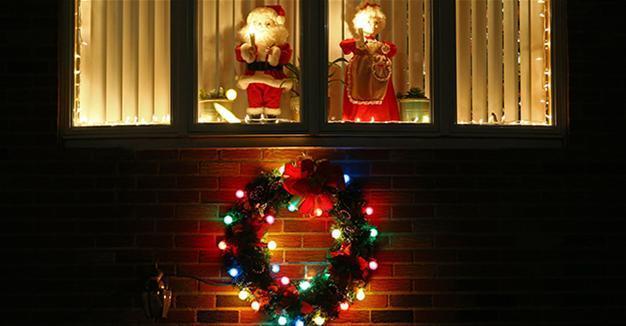Not-so-happy New Year: From forced fun to fear
Nazlan Ertan - nazlanertan@gmail.com

AA photo
I have hated everything about New Year’s all my life: cheap street decorations, things no one would try to pass off as gifts at any other time of the year, restaurants where food is bad and the music is worse, television channels with loud and gaudy programs and connections to main squares in New York, Paris and London, street parties where there are just too many people, friends’ house parties where you have to work to be amused, family dinners where you nod politely at boring conversation and try to be nice to skirt-tugging kids who should have been in bed long ago. Oh, and the hangover of the next day and wasted resolutions, too.It never occurred to me that I would miss it. But then, I never imagined that I would have to choose between forced fun and fear.
Last year, reading Turkish writer Elif Şafak’s description of the New Year’s celebrations of her childhood in the Financial Times (an article aptly titled “Turkey’s vote against Christmas”) I thought of an old photo from one of the New Year’s Eve parties we used to have at home. In this black-and-white photo, where my father and his friends have turtleneck sweaters and long sideburns, my brother and I are wide-eyed and tired as we unwrap the gifts that were brought by a guy in a very fake white beard – a total stranger who was the neighborhood Father Christmas/Santa Claus for several years of my childhood in Ankara. He knocked on doors, gave small gifts and took a small token sum. Today, I doubt if any family would open its doors to a strange man dressed as Santa Claus, particularly if he is carrying a heavy bag on his back.
In my 20s and 30s, I witnessed the redundant Santas who had become common marketing tools – in supermarkets, stores, malls and on the street. They were as common as street decorations and street markets and just as tacky, aside from a few exceptions such as the chic Nişantaşı New Year decorations in the early 2010s.
Then, around five years ago, they all started disappearing. Santa, like wine and cigarettes, became a political target, a symbol of Western cultural – and military – invasion, a demonic figure who gave gifts to Western children but threw bombs at the Eastern ones. “If Santa was an honest guy, he would not be climbing down the chimneys of other people secretly,” said a politician, only half in jest. Isn’t there some sinister twist of logic in the fact that people who advocate the marriage of underaged girls to their rapists treat Santa as some sort of child molester?
Last year, a man dressed up as a Janissary, an Ottoman soldier, chased away a man dressed as Santa – an incident that the satirists loved and combined with the jokes of “Santa refusing to enter Turkish air space this year” – a dig at the downing of the Russian jet last December.
This year there is no controversy, no modernist vs. traditionalist debate as we reach 2017. Even the most determined advocates of New Year festivities are too shocked over recent terrorist attacks, too gloomy and, let’s face it, too scared. In the city of İzmir, the vibrant multicultural metropolis once known for its Levantine Christmas and New Year’s celebrations, the decorations are few and weak. The municipality, which is from the Republican Peoples’ Party (CHP), announced earlier this week that it had canceled the New Year’s street concert with famous singer Şebnem Ferah, originally planned to take place at the city’s main Republican Square. The perceived risk in city squares is no longer pickpockets or gangs that molest women, as it had been two years ago.
As we reach the end of a year that started with the arrest of academics who signed a peace petition, continued with a coup attempt and ended with the assassination of the Russian ambassador, with hundreds dead, detained and a looming economic crisis in between, many Turks are numb and deeply fearful.
Earlier this week, we went to the annual New Year’s concert at the Adnan Saygun Hall, an award-winning venue of great acoustics. Toward the end of the concert, an old, limping woman walked toward the stage and we, in the audience, looked at each other in fear, almost wishing that a man in uniform would stop the woman. She simply moved toward the stage and asked the orchestra to play “10th Anniversary of the Republic March.”
Is it any wonder that I am nostalgic for a bad New Year’s Eve of forced fun, given the present feeling of fear, even toward an old, limping woman who makes an unexpected move at a New Year’s concert?
















